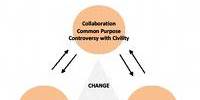Special education tutoring is one of the most valuable services that a parent can secure for a child who lives with a learning disability. Children with learning disabilities are often overwhelmed by the difficulties they face in a group-learning environment.
Moreover, these children are additionally tasked with the challenge of completing a range of standardized tests. Often, these tests are structured in direct opposition to how they confront and process information.
Today many people with disabilities are breaking barriers through the use of technology. For some individuals with disabilities, assistive technology is a necessary tool that enables them to engage in or perform many tasks. Integrating technology will allow students to increase their self-confidence, self-motivation, independence and they will also be able to engage in different activities within the school.
Many people with special needs are denied when they want to participate in a sport. In the U.S., the Office for Civil Rights ensures students with disabilities always have opportunities to participate in extracurricular athletics equal to other students. Special education students can benefit from sports in many ways. For example, studies show it boosts self-confidence and improves the participant’s skills in relationship building and working as part of a team.
Special education tutoring can help pave the way to academic success whether our child is dealing with;
- Autism Spectrum Disorder (ASD)
- Dysgraphia
- Dyslexia
- Language Processing Trouble
- ADHD
- Any Other Learning-Related Challenge
Just about any sport can be altered for special education purposes. Some of the popular sports are swimming, wheelchair soccer, handball, gymnastics, and weightlifting. Many competitive organizations are available for special needs student-athletes. For example, the Special Olympics is an annual, worldwide competition held for children with disabilities that want to participate in sports. Other organizations include the Paralympic Games and Unified Sports, the latter which pairs participants with and without intellectual disabilities on the same team. Educational institutions can also promote Adapted Physical Education, which tailors sports for students with certain disabilities. Organizations like S.T.R.I.D.E. Adaptive Sports help educational institutions in providing opportunities for special education student-athletes. Some of these sports might include wheelchair basketball or sled hockey.
The following are ten ways that students can benefit from special education tutoring.
Helps Children Focus On Their Challenges: Attempting to process information and maintain pace with the rest of the class can be challenging.
As teachers and peers move on to new ideas and skills, students with special needs often find themselves in a state of panic, mainly when new lessons are designed to build upon previously presented information.
When children have access to special education tutoring, they’ll have ample opportunity to revisit challenging subject matter, use new strategies for accurately conceptualizing and comprehending these topics and prepare for the advance into related and more complex materials.
Ultimately, rather than falling behind in class, children can take part in special education tutoring at the end of the day or week and receive a chance to catch up and keep up.
Helps Children Grow Comfortable In Seeking Help: Working with educators who are both knowledgeable and understanding of their unique needs helps children feel more comfortable about their unique learning methods.
Not only does special education tutoring help alter how they approach the learning process, but these sessions additionally allow students to get a deeper understanding of themselves and how their minds function.
Children are better able to ask for help when they need it and more effective in advocating instructional and test-taking methods that will improve their lifelong learning experiences.
For older teens that are preparing for higher education, this ability to advocate for themselves will later prove invaluable.
Easily Match Students with Educators Who Understand Their Disabilities: It is not uncommon for special education tutoring services to pair students with educators who live with the same or similar learning disabilities.
These tutors often have the best ability to recommend effective strategies for overcoming learning obstacles, setting and achieving goals, and dealing with testing frustration and anxiety.
Help To Identify Individual Learning Styles: If an Individualized Education Plan or IEP doesn’t yet exist, special education tutoring is most effective when tutors can assist students in identifying their individual learning styles.
At Special Education Resource, our tutors all hold degrees in various special education fields of study and specialize in molding the curriculum your child is currently learning to fit their specific learning style.
Help To Identify The Best Test-Taking Strategies:
Children take test differently when they have learning disorders such as;
- Autism Spectrum Disorder (ASD)
- Language Processing Trouble
- ADHD
- Dyslexia
Sadly, in many instances, there is little opportunity to approach the testing process in a way that is optimally suited to the needs of the individual.
Special education tutoring services can structure test prep to meet best the needs of those who cannot sit through hour-long sessions of reviews. Moreover, tutors can help students prepare for unexpected questions, such as those that are open-ended, or that may have more than one right answer.
Alleviate Testing Anxiety: Having access to strategies that children can use when they encounter unexpected questions or dramatic changes in test-taking routines can alleviate some of the anxiety that students feel during these processes. With special education tutoring, teens can confront important exams such as the SAT, with confidence and a sense of preparedness.
Helps To Secure Special Testing Accommodations: As teens prepare to take pre-college examinations, these children and their parents need to have a clear understanding of which testing accommodations are available in every instance.
Special education tutoring services can help people learn more about the guidelines for these special accommodations and about how to use these to the fullest.
Builds Confidence: Children with learning disabilities who receive special education tutoring services tend to be far more comfortable in the learning environment than those who do not. This comfort can lead to fewer behavioral issues and fewer problems with;
- Anger
- Depression
- Frustration
- Anxiety
Children who receive special education tutoring on a year-round basis, rather than just before major testing seasons often experience the most progress.
Students Learn New Strategies To Aid In Their Comprehension: One of the significant hurdles that teens must make is discovering how to become and remain accountable for their learning needs when entering the college environment.
Special education tutoring services do more than prepare kids for pre-college examinations. These professionals also help young learners develop the strategies and skills that they need for succeeding in higher education.
Prepares Students For Lifelong Success: Ultimately, special education tutoring services help children to develop the best possible understanding of their learning disabilities and needs.
Children are given tips and tools for overcoming differences in learning methods, particularly when confronting new materials in-group environments. Priming them for success during the formative stages of the learning process, in college and beyond the campus. With the help of special education tutoring services, students can rise above their learning disabilities and can pursue and attain their personal and professional goals and excellence.
Despite inherent challenges, most special educators were largely satisfied with the instructional aspects of their position. Many of them felt supported in their role through relationships with others in their school and rural community. To illustrate this relationship between professional support and satisfaction, when commenting about what they liked best about their position, a number of special education teachers centered their remarks around the supportive community they had in their rural school and small town. Special educators described close knit-relationships among school staff and a greater sense of familiarity with students and their families. This broader knowledge of their students gave teachers the sense they could individualize instruction more effectively and improve student learning outcomes.
In addition, half of the special education teachers stated they shared the responsibility of providing services to students with disabilities with other teachers including general education teachers, that teaching was a team effort.
However, relationships between teachers were not always supportive. Consequently, special education and general education teachers may need training and administrative support to foster these potentially beneficial relationships.
Information Sources:
















